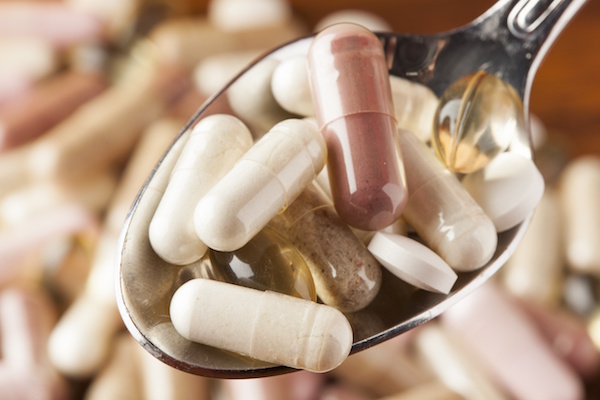
THURSDAY, Jan. 7 (HealthDay News) — The popular herbal supplement St. John’s wort does not appear to relieve the pain and discomfort that accompanies irritable bowel syndrome (IBS), new research suggests.
The finding is the first to indicate that an herbal preparation long-touted as an effective alternative treatment for mild and moderate depression does not appear to treat IBS.
“People are definitely looking for alternative treatment options, and as a physician I have patients showing up all the time with supplements and asking me, ‘Should I be taking this?'” said study author Dr. Yuri A. Saito, an assistant professor of medicine at the Miles and Shirley Fiterman Center for Digestive Diseases at the Mayo Clinic in Rochester, Minn. “But there is a global paucity of clinical trials with respect to natural alternative agents, so it’s not always possible to give a good answer,” Saito added.
“So we decided to see whether St. John’s wort — which is a bona fide, effective treatment for mild-to-moderate depression — is effective as a treatment for irritable bowel syndrome, which no one had done before,” Saito said. “And unfortunately, we found that at conventional doses of 900 milligrams a day, we did not see any clear benefit over placebo.”
Saito and her colleagues report their findings in the January issue of the American Journal of Gastroenterology.
The authors point out that St. John’s wort held promise as a potential IBS treatment, given that depression is often linked to the onset of IBS. In fact, prescription antidepressants are frequently used for the treatment of the syndrome, which affects between 10 percent and 22 percent of the U.S. population.
Therefore, to test St. John’s wort as a treatment for IBS, the research team tracked 70 patients aged 18 to 70 between 2006 and 2008.
All the patients had a confirmed diagnosis of IBS, and over a 12-week period half were treated with two daily doses of St. John’s wort (450 milligrams each), while the other half were given placebos.
Biweekly monitoring of symptom relief and a post-study follow-up revealed that both the St. John’s wort group and the placebo group experienced a “pattern of improvement,” with some dissipation of the bloating, constipation, diarrhea, pain and discomfort typically caused by IBS. No patient in either group experienced any serious side effects.
However, the placebo group actually fared better, ending up with a significantly greater reduction in IBS symptoms than the St. John’s wort group, the study authors found.
What’s more, by the study’s conclusion, more patients in the placebo group said their IBS symptoms had improved moderately or a lot and more indicated a willingness to continue taking their treatment, compared to the St. John’s wort group.
“Unfortunately, a lot of people out there are purchasing supplement products based on trial-and-error,” Saito noted. “But even though I wouldn’t have any hesitation about recommending St. John’s wort for depression, based on this I think I’d feel reasonably comfortable telling my IBS patients to save their money because I don’t think St. John’s wort is going to help.”
In reaction to the findings, Douglas MacKay, vice president of scientific and regulatory affairs for the Council for Responsible Nutrition, the leading trade organization for the dietary supplement industry — suggested the current study was too small to be considered definitive or generalizable to all IBS patients.
“Additionally, it is important to point out that those treated with St. John’s wort were not depressed,” noted MacKay, “so this study does not answer the question of whether or not St. Johns wort may have benefit for depressed individuals who also suffer from IBS, which is a common subtype of individuals with IBS. We would like to see more research conducted with depressed individuals with IBS, where St. John’s wort may be most effective.”
On the other hand, he observed that the study does “reiterate the strong safety profile of St. John’s wort,” and stressed that the supplement continues, therefore, to be a safe choice for patients coping with mild-to-moderate depression.
More information
For more on irritable bowel syndrome, visit the National Digestive Diseases Information Clearinghouse.

